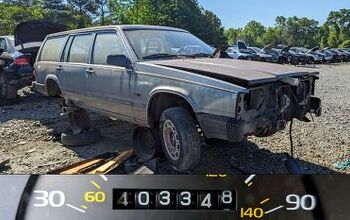Automakers Take Stock After Major Metal Supplier Admits Selling Shoddy Aluminum

It’s often hard to remove an ingredient after the cake’s emerged from the oven. Because of this, news of Kobe Steel’s falsified inspection reports no doubt came with a fair bit of nervous collar tugging for executives at several automakers.
The Japanese company, which has subsidiaries in numerous countries, is a go-to supplier for the automotive and aircraft industries, providing steel, copper and aluminum components to companies as diverse as Ford and Boeing. Last week, Kobe admitted to selling substandard (or suspected substandard) materials to 500 companies, among them Ford, Volvo, Toyota, Honda, Nissan, Mitsubishi, and possibly Mazda.
Oh, and Mercedes-Benz, Tesla, General Motors, Hyundai, and Renault.
Maybe you’ve heard of them.
The shocking admission appears to be the product of a company-wide culture of deception. Multiple plants reported falsified data. Now, manufacturers are struggling to determine exactly what parts went in what vehicles, and whether it’s anything to worry about.
In Japan, Kobe components are used to connect wheels to 200-mph bullet trains operated by the Central Japan Railway Company. The company claims the materials with substandard (or potentially substandard) strength and durability specs include aluminum extrusions, copper piping, aluminum castings and forgings, and flat-rolled aluminum.
At Ford, which recently gave its F-150 and Super Duty line a healthy dose of weight-saving aluminum, only the Chinese-market Mondeo sedan’s hood is suspect. The automaker, like others, is working to identify all Kobe-supplied parts. For its part, Kobe says it will release findings on new safety checks on the affected products within two weeks. Within a month, it should have an answer to why this happened in the first place, plus a plan on how to deal with it.
Also, CEO Hiroya Kawasaki says he might resign once quality inspections wrap up. The company is “intent on shouldering the costs” borne by affected companies, should that occur, Kawasaki said last week.
Despite the breadth of the scandal, no company has yet flagged a product as posing a specific safety concern.
[Sources: Bloomberg, Automotive News] [Image: Volvo Cars]

More by Steph Willems
Latest Car Reviews
Read moreLatest Product Reviews
Read moreRecent Comments
- Spectator Wild to me the US sent like $100B overseas for other peoples wars while we clammer over .1% of that money being used to promote EVs in our country.
- Spectator got a pic of that 27 inch screen? That sounds massive!
- MaintenanceCosts "And with ANY car, always budget for maintenance."The question is whether you have to budget a thousand bucks (or euro) a year, or a quarter of your income.
- FreedMike The NASCAR race was a dandy. That finish…
- EBFlex It’s ironic that the typical low IQ big government simps are all over this yet we’re completely silent when oil companies took massive losses during Covid. Funny how that’s fine but profits aren’t. These people have no idea how business works.


































Comments
Join the conversation
A cheer for VW for only cheating on emissions. It could have been worse: assembly via child or slave labor and using Kobe steel.
I am somewhat surprised to hear these stories about large Japanese corporations. What shocks me even more that these scandals are not followed by public seppuku of the management. That's not the Japan I remember hearing about. Anyway to VW, I was in Europe in the summer and on the news I heard that I believe it was ADAC that conducted a study which showed that German diesel engines were on average 4-5 times cleaner that the rest of the auto industry. But it didn't explain why then VW needed to cheat government inspections if their diesels were so much better than others.